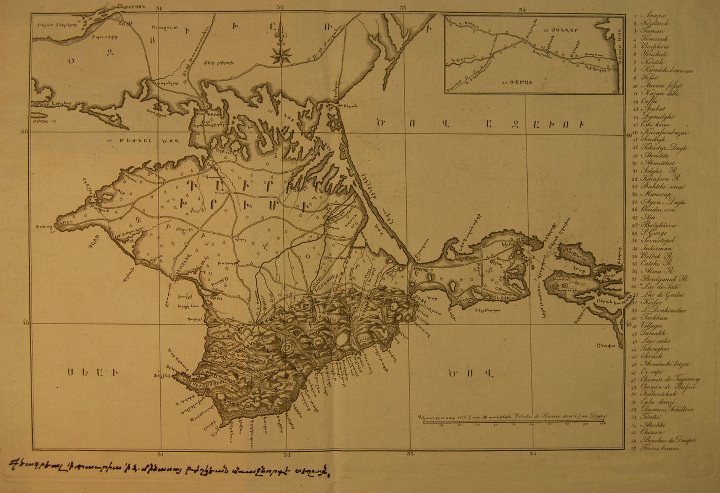South Stream Shapes European Energy Security, Nabucco Falls Behind  By Igor Alexeev By Igor Alexeev
Russian journalist and blogger for Strategic Culture Foundation and Route Magazine. He writes on the oil and gas sector, Eurasian energy security and shipping industries in the Arctic.
South Stream is an ambitious endeavor of Russia’s energy giant Gazprom to get direct access to the EU energy market. It is portrayed and criticized by some politicians in Europe as a “dangerous” gateway to a broader economic relationship with Moscow. Remarkably enough, Bulgaria, Serbia, Croatia, Slovenia and Hungary have one-by-one opted for the project.
The South Stream Fact Sheet
- Gas pipeline will be 1455 km long in Southern and Central Europe;
- 8500 people will be employed in its construction, with 770 at the operational level;
- Eight compression stations are to be set up in the main transit countries;
- The South Stream planned transport capacity may reach 63 billion cubic meters;
- The overall cost of the project is approximately $39 billion.
READ MORE
- Tuesday, 7 May 2013, 07:57
Regional Integration as a Conflict Management Strategy in the Balkans and South Caucasus
 By Anna Ohanyan, By Anna Ohanyan,
EGF Affiliated Expert on South Caucasus region building
There is much enthusiasm among researchers and policymakers alike concerning the pacifying effects of trade and broader interdependence among states. The European Union is an often cited example of greater regional integration as a way to enhance peace and security among neighboring states. This comparative regional study draws from the cases of the Balkans and South Caucasus in order (1) to offer a descriptive account of patterns and processes of regionalism in politically divided conflict areas, and (2) to examine the extent to which such regional engagement can positively affect ongoing conflict management efforts in a given conflict region. The study advocates promoting regional structures as a new and potentially effective approach to peace-building and security enhancement, toward managing the many 'frozen conflicts' both in the Balkans as well as in the South Caucasus. READ MORE
The evolution of European and Euro-Atlantic policy making in the wider Black sea: EU and NATO attempts at strenghening regionalism in an area of strategic interest 
Debates about the geopolitical, geo-economic and strategic significance of the wider-Black Sea (WBS) region have become fashionable amongst Western policy makers and the international scholarly community since the end of the Cold War. While the Black Sea represented a “front line” in the stand-off between rival superpower blocks during an age which now seems to have slipped into the bygone days of our youth, the major geopolitical realignments which have taken place in Eurasia during the last two decades have evidently led to our “re-discovery” of one of the world’s most historically significant geostrategic playing fields. To read more click here.
- Wednesday, 1 August 2012, 20:27
What are the main obstacles for realisation of Southern Energy Corridor projects?  Martin Vladimirov, Martin Vladimirov,
Expert on Balkan-Black Sea External Relations and Energy Security
It has been two decades now since the southern energy corridor, linking the energy producing Caspian and Middle East regions with European consumers, was incepted. The 1990s proved to be very successful after the U.S. was able to fill in the geopolitical vacuum in the Wider Black Sea region and divert significant amounts of Caspian oil and gas away from Russia and in direction Europe. Yet the strong push for diversification of the European energy supply came to a sudden halt after 9/11. The U.S. changed its geopolitical priorities focusing on the destabilized Middle East and South Asia. Since then the EU has been painfully searching for alternatives in accessing the vast Caspian reserves. The Nabucco gas pipeline, which has been seen as the strategic continuation of the Baku-Tbilisi-Ceyhan (BTC) corridor, has remained only a distant dream as gas quantities available are simply not enough to fill the 31 billion cubic meters (bcm) pipeline capacity. READ MORE
- Tuesday, 12 June 2012, 09:29
Kofi Annan’s Syrian mission  Mikhail Roshchin Mikhail Roshchin
Former United Nations Secretary General Kofi Annan appears to have made some diplomatic strides in efforts to mediate the violent uprising in Syria. And Annan’s mission also has gained Russian support, which is a crucial key to an international consensus on how best to resolve the Syrian conflict. We are joined on the line with Mikhail Roshchin, a Senior Research Fellow at the Institute of Oriental Studies at the Russian Academy of Sciences. READ MORE
- Saturday, 31 March 2012, 05:58
EGF Middle East Briefing - Egypt’s New Political Landscape: between Democratization and Old Legacies  Claudia Nocente Claudia Nocente
EGF Researcher, Global Security
Egypt’s Islamic state on the horizon
Egypt is once again in the headlines. The results of the first, allegedly, free elections after the ousting of Hosni Mubarak as the Egyptian president are causing widespread concern, especially in the West, about the country’s process towards democratization. Many fear that the legacy of the former political establishment will haunt the country for many years to come. Egyptians have been denied any aspect of a wealthy social and political life and are now concerned about the fruits of their courageous actions and the new seeds last year’s events have implanted. What will Egypt look like a year from now? Will it end up embracing a hardline Islamist direction in the administration of political power? READ MORE
Letter from Istanbul, by EGF International Expert on Energy Security, Mehmet Oguctu  by Mehmet Öğütçü by Mehmet Öğütçü
In his “Letter from Istanbul”, EGF International Expert on Energy Security, Mehmet Oguctu, argues that for the first time in several generations, there is a credible belief within Turkey that with the right policies, institutions and leadership, the country could well sit on the management board of the new world order by 2023, the centenary year of the founding of the modern Turkish state. Click here to read Mehmet Ogutcu’s letter
- Thursday, 8 March 2012, 08:14
Whither the Euro-Atlantic security?  By George Niculescu, By George Niculescu,
Director of Programs, Centre for East European and Asian Studies Bucharest,
Affiliated Expert, European Geopolitical Forum Brussels
Historically, the roots of the phrase "Euro-Atlantic security" stem from the revolutionary shift towards cooperative relations between NATO and its former adversaries from the Warsaw Treaty Organization promoted through the North Atlantic Cooperation Council and the Partnership for Peace (PfP). From an institutional point of view, since 1997, the Euro- Atlantic security is tightly linked with the Euro-Atlantic Partnership Council (EAPC) which has been created jointly by the NATO members and PfP countries (including Russia, Ukraine, and the other independent republics emerging from the dissolution of the former Soviet Union) as a forum enabling an "expanded political dimension of partnership and practical cooperation under the PfP" [Basic Document of the EAPC]. The EAPC was meant to complement the respective activities of the OSCE, the European Union, and the Council of Europe. READ MORE
- Thursday, 8 March 2012, 08:13
|
|